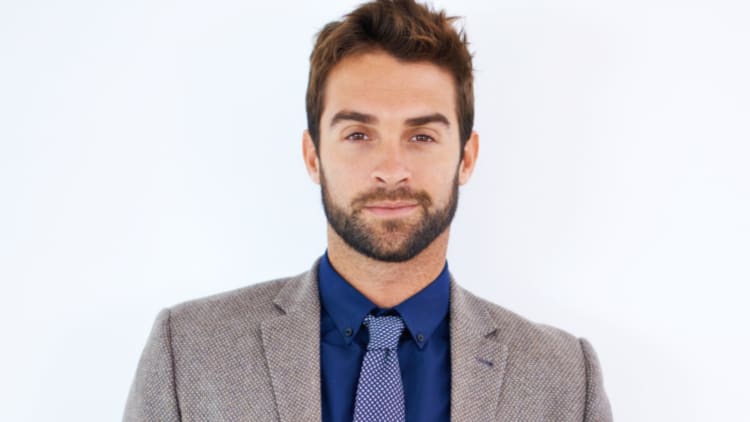Living in New York and working in advertising, I rarely see people over the age of fifty.
My elders seem to be a secret population — a growing, sizable, increasingly healthy and wealthy group — that I'm never exposed to, let alone have the pleasure of working alongside. This is one of the worst things about working in Marketing right now.
As an industry we're obsessed with youth, we're endlessly trying to get "upwardly mobile Millennials" or "hard to reach youthful influencers" or some nonsensical and largely broke crowd who can't afford the premium SUV we have on offer. Meanwhile, we've not looked around the BA First Lounge or the Hyatt Hotel lobby, or the Emirates Business class cabin to see that all the people with money and influence are actually rather old. And wise.
More from Tom Goodwin:
The future of retail is extreme
Two big questions to get innovation right
What CES really means for Marketers
Occasionally, on the rare events where I get to listen to some of the wonderful old folk of advertising, it quickly makes me realize how much we as an industry suffer from a lack of wisdom. We have incredible levels of vision, an abundance of precociousness, brilliant creativity, but as an industry we pretty much have no wisdom at all.
It's a problem, but it takes wisdom to realize how important wisdom is, so we don't notice it. And for many young leaders, how can you miss something you've never experienced?
It started to happen in the early 2000s — expensive, wise people that hadn't grown up with Blackberries and expected long lunches and business class seats that didn't get open plan offices, were slowly removed from the business. We didn't notice it for quite some time because we were too busy playing with our new toys — the internet, the banner ad, the microsite, and the iPhone. We had rallying cries to get digital folk on the pitch team.
We'd fly hapless 24-year-olds around the world to ensure we had the voice of youth on the team, but we abandoned the voice of context.
It's now been such a long time that we've completely forgotten what it's like to have someone in the room who objectively knows more. Who, while earning the big bucks (that it's hard to explain to our clients) understands real clients' issues, and who above all else, can see the changes in business and marketing in the context of decades of what has happened before. These days we lazily assume that things have changed & their knowledge would be out of date now, what can we possibly learn from someone who may happen to have a 16-year-old daughter, and therefore probably has a more intimate understanding of contemporary behavior than anyone.
Instead, we get mobile marketing experts, who with their six years of experience are seen as mobile advertising opinion leaders. And how can they not be? They've lived this stuff for three times longer than anyone else. We get social media gurus who seem to just be people, with the same common sense as everyone else, but with fewer more important skills to leverage.
It's gotten to the point that it's now possible to be in a room with 400 agency employees, earning tens of millions of dollars in revenue, without a single person who can remember the advertising world pre-mobile days, let alone pre-computer.
As a result, we've faced a growing vicious cycle of problems.
We lack gravitas and business sense
As an industry, we've moved down from being key members of our clients' board to people who get clients' junior staff drunk at Cannes and talk about "likes" on Facebook. Do you see many ad agency execs in the business press? Do our press releases get picked up by the Financial Times?
It wasn't always like this. In 1987 Saatchi & Saatchi tried to buy HSBC. Just imagine seeing that ambition in an agency now.
Look around, look at our people, look at our understanding of key business problems, and look at what we care about. It's not remotely hard to see why most CEOs won't even think to be a part of a pitch process or meet the agency, and won't consider marketing agencies in the same league as management consultants.
We think everything is new
It's not like ad agency people have bad memories, they've just not seen experienced the ebb and flow of change before.
We swim in a world of groovy new language and trendy new terms, all unaware that basic advertising concepts, tools, and techniques are tried and tested over years.
Native advertising and content marketing, two of the 2 biggest buzzwords of 2014, have been around for more than 100 years. Take the examples from the 1890s when John Deere launched the Furrow magazine, the Michelin Guides from 1900s, recipes from the Oetker Company, or even the entire soap opera genre. Somehow the entire current advertising world thinks that we face entirely new, abundantly exciting opportunities.

Don't get me wrong: A lot in advertising has changed, but what we really need now is the wisdom to separate the gimmicks from the profound.
We're endlessly told by 26-year-olds at SXSW that television is dead, or that the purchase funnel no longer exists, or that people want to have conversations with brands. These quasi-ad celebrities with their 16,000 twitter followers beat the drum on the march towards progress, but few people are wise enough to question their wisdom.
These naïve and off the cuff remarks spawn Slideshare presentations and new marketing strategies that few people from the old world feel confident enough to challenge.
Social media has not changed everything about how we behave. We've had social media since we first roamed the earth. Have you seen what people wrote on the wall in the caves of Lascaux?
We don't see change in context
When radio ads first became possible, there were groups of ad agency folks running around talking about the death of newsprint. They started having panicky conversation about the need to set up radio ad agencies, find a new breed of radio creatives, and stressed how real-time advertising would change everything.
Twenty years later, identical conversations followed with the dawn of TV. Again people predicted radio's rapid demise and how the world of advertising needed to adapt by hiring new people. This time we think it's different, because that's what people do when they've no experience to suggest otherwise. Whether it's the rise of the internet or the time spent on mobile phones, we keep suffering from a lack of context.
It's undeniable that our generation is going through more profound change, at a faster rate than ever before. Entire business models are being disrupted, and as the world of advertising is also changing, yes, sticking to old-world thinking is totally the wrong way forward.
However, we need to carefully ensure that we understand these changes in context. We need to establish what aspects are changing and what aspects are fundamental. We need to understand what is a fad and what is a cultural shift. And what would really help do that would be a wise person of a certain age who understands change — someone not trying to build a career on an Advertising Week stage with a nonsensical sound byte that resonates with people who don't know better.
And older, wiser, smarter people, please chip in. Please don't ever think you're not exactly what we need. Don't be intimidated by the talk of change, the buzzwords, raise your hand and join the debate. Embrace the new, see what really has changed. Flex your mobile muscles, think about what streaming really means. Your instincts are right, your input is needed, please don't let anyone suggest otherwise.
This article originally appeared on LinkedIn.
Tom Goodwin is the Head of Innovation at Zenith Media.




